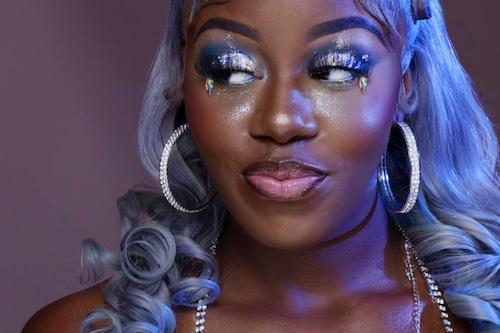Clearly, the owner would have preferred to be elsewhere.
Days after a season that ended with his team again missing out on the postseason and ending the year in last place in the division, taking questions from reporters was the last thing he wanted to do.
But he saw it as his responsibility, noting that as owner of the franchise, he considered himself “custodian of this asset.”
The announcement of a change of leadership had been expected for some time, but he still felt a duty to explain the reasoning behind the move.
After all, following another disappointing season for his franchise, this was on him.
“We have a responsibility to fix it,” he said.
The above scenario was not, as you’ve probably already guessed, the scenario that unfolded at Fenway Park in mid-September when the Red Sox fired Chaim Bloom.
Instead, it took place Thursday when the Patriots announced they had parted ways with longtime coach Bill Belichick. Owner Robert Kraft didn’t have to be there. But he was, offering why the move was made while thanking Belichick for his many accomplishments and contributions.
Meanwhile, when the Red Sox dismissed Bloom, Henry was nowhere to be found. The job of announcing the move, and then answering questions about why it was made and where the team would go from there, was left to team president and CEO Sam Kennedy.
Henry had been at Fenway that day, and with team chairman Tom Werner and Kennedy, informed Bloom of the decision. But when it came time to face reporters, to be accountable, to address the fans, Henry was nowhere to be found.
That’s been the case for some time, now. Other than a few informal exchanges with reporters during the 2021 postseason and a few exchanges with two reporters via email last February, Henry has not made himself available to the media in a press conference setting since February of 2020, almost four years ago.
A lot has happened to the Red Sox since then, much of it negative. They have hired two managers, fired one chief baseball officer and hired another. They’ve handed out the biggest contract in franchise history, and allowed a popular homegrown All-Star to leave via free agency. In the four seasons since Henry’s last media availability, they’ve finished last three times in four tries.
More recently, the team has seemingly shifted gears when it comes to spending. After consistently being among MLB’s top spenders for the first 20 years of Henry’s tenure, the Red Sox scaled back payroll last year, dropping out of the Top 10 in spending and so far this offseason, seem intent on lowering it further.
And through it all, Henry has been unavailable, with no sense that he owed the fan base any explanation. It’s been left to Kennedy to act as his public surrogate, to provide the reasoning behind why moves were — or were not — made.
Meanwhile, there’s been little guidance on the retrenchment in spending. Is this permanent? Temporary? The result in a change of philosophy? Who knows?
In Henry’s absence, fans and media can only speculate.
Henry has made it known that he’s uncomfortable speaking with the media, and in his mind, that task is best left to others who perform better in that setting. But Kennedy’s sunny disposition and relentless optimism is no substitute for hearing from the principal owner of the franchise himself, the one who ultimately makes the big decisions.
It wasn’t always this way. For years, awkward as he may have felt, Henry answered questions about managerial comings and goings, or changes at the top of his baseball leadership group. He provided answers when free agents arrived or departed.
He did so because, as he once explained in the bio that ran in the team media guide, owning the Red Sox constituted “a public trust,” and he felt responsible to provide answers to his paying customers.
Now, he’s transformed into an absentee owner — there, but not there. When the Red Sox introduced Craig Breslow as Bloom’s replacement in the first week of November, Henry was in Fenway Park, but wandered into the press conference some 20 minutes after it began, watching from a safe distance as if he happened upon the event by accident.
By any measure, that represented some spectacularly poor optics. Even if Henry remains invested — in every sense of the word — in the Red Sox, it sure looked like he didn’t care enough to show up on time for a big announcement involving his management team.
Even as he avoids the public spotlight, his team is faltering. The Red Sox have qualified for the postseason just once in the last five years. Attendance last year and the year before fell under 2.7 million in a full, non-COVID season for the first time since 2002, the first year of Henry’s ownership.
TV ratings are a fraction of what they were a decade ago and fans increasingly find it hard to identify with a roster of players that has undergone a near-constant churn. The team is routinely ignored on each of the two sports radio stations in town, mentioned only when the Sox can serve as a handy punchline.
Strangely, Henry doesn’t seem to grasp the consequences of his reclusiveness, or understand that his lack of engagement sends the worst possible message to the fan base. His unwillingness to connect with fans paints him as uninterested and allows them to think that the Red Sox have become just another asset for him, one of many in his FSG portfolio.
Kraft, too, has taken on a lower profile of late. While the Patriots stumbled and bumbled through their just-completed season, his only media availability came in Germany, and then, only with the league’s own television arm. Still, he’s there at every home game, shown in his box, tangible proof that, no matter what, he cares.
In some ways, Kraft and Henry are quite alike. Both are billionaires. Both are generous in their philanthropy. Both are powerful voices behind the scenes of their respective leagues.
But in other, more obvious ways, they couldn’t be more different. Kraft seems to understand the need for owner accountability and the importance of showing up when things aren’t going well. Call it a sense of duty.
Henry once realized the significance of those things, too, however uncomfortable those tasks made him. And if he wants to understand why, other than its poor on-field performance, his team has fallen from grace and gone from unimaginably popular to borderline irrelevance, he need only look in the mirror.
$200 INSTANT BONUS
DRAFTKINGS MASS
BET $5, GET $200 BONUS BET
FANDUEL MASS

BET $50, GET $250 BONUS
CAESARS MASS
$1,000 FIRST-BET BONUS
BETMGM MASS
MA only. 21+. Gambling Problem? If you or a loved one is experiencing problems with gambling, please call 1-800-327-5050 or visit gamblinghelplinema.org for 24/7 support. LiveChat with a GameSense Advisor at GameSenseMA.com or call 1-800-GAM-1234
MA Gambling Helpline.
________________________
The start of spring training is just over a month away, and already Kyle Hudson can’t wait to ge started.
The team’s first-base coach and outfield instructor is thrilled with the potential of the Red Sox outfield. Wilyer Abreu and Ceddanne Rafaela are talented young major leaguers with high ceilings and superb defensive skills. Newcomer Tyler O’Neill is a two-time Gold Glove winner. Jarren Duran had a breakout year until a late-season injury derailed him. And Masataka Yoshida, having gone through the necessary adjustments in his first season in North America, figures to improve.
There are defensive issues in the infield, but in the outfield, the Red Sox have the potential to make plays and convert balls in play into outs.
“There’s a lot of versatility in the group,” said Hudson. “There’s no real set left fielder, center fielder, right fielder. I think each one of our guys can play multiple positions. That’s going to be a good thing for the group, for sure.”
With Alex Verdugo traded, right field is up for grabs. O’Neill could see time there, as could Rafaela or Abreu. Spring training will offer a chance for the three to compete for the job, and the configurations of jetBlue Park in Fort Myers, while not a perfect replica of Fenway when it comes to right field, will help.
“It’s the toughest right field (in the league to play), so it’s a huge challenge for the guys playing that position,” said Hudson. “It’s important for me to do my due diligence, to have those guys prepared to play there and help them understand the nuances that right field at Fenway has to offer. Going into spring training, that’s going to be a huge thing. A lot of work is going to be done inside jetBlue (rather than the many back practice fields) with the dimensions and all that.
“It’s a fun challenge to have those guys prepared to play all of those (outfield) positions, but especially right field. Obviously, nothing’s exactly like how it’s going to be at Fenway, but we can do some things that will help them get a head start.”
Hudson is particularly excited to see the growth from Rafaela and Abreu, who made great strides in the second half.
“You watch both of those guys play defense and both are above-average defenders,” Hudson said. “Rafaela goes through the work and he’s impressive. He pushes the group with his speed, instincts and reactions. And Abreu, he has his routine down. He did his footwork and glove work every single day, early, before we went out. He takes pride in his defense, as does Rafaela. Any time you add guys who care about playing that side of the ball and are above-average, it’s great.”
The versatility of the group excites Hudson, since everyone but Yoshida is capable of playing multiple outfield spots. That opens up plenty of options for manager Alex Cora and paves the way for a lot of different lineup combinations.
“We can mix-and-match a lot,” said Hudson, “and move guys around, which is nice.”
And while Yoshida is, by both the eye test and defensive metrics, ranked at the bottom of the group defensively, even he made progress over the final month of his rookie season.
“I think he’s only going to get better,” Hudson said. “As he gets more comfortable, you’re going to see him continue to improve. I think his reads improved later in the season and he kind of attacked the ball more. That allowed his arm to play up a little. He was dealing with some arm stuff throughout the season at times, but he got more confident in the reads and his routes got much better and more direct. If he gets to the ball, he’s going to make the play. It’s his ability to kind of maximize on the front end with those reactions on the ball off the bat and that first step efficiency — that’s where he needs to get better. And I think he did, over the course of the year, for the most part.”
The addition of O’Neill, too, should further bolster the group.
“When you bring a guy in who’s won a Gold Glove, the respect factor from everyone involved is heightened tremendously,” said Hudson. “And a guy who’s won multiple Gold Gloves? That’s impressive. He’s going to fit in well with our group. I’m excited to have a guy like him, especially with some of the younger outfielders we have. There’s versatility there, too. He’s played a lot of left field, played some center field last year.”
While he celebrates the versatility of the outfield group, Hudson emphasizes that they have to learn to get comfortable playing together.
“We’ve got to be a group,” he said. “We have to play off each other and get comfortable. I’m sure (Cora) is going to mix-and-match guys in different spots and guys are going to get comfortable playing next to different guys. There has to be an understanding. Rafaela has to understand Masa’s range and his ability to go to his glove side when he’s in left field and Rafaela’s in center. Duran, same thing — he’s got to have an understanding of the guys in the corners and their abilities when he’s in center.
“We’re going to focus on that in spring training and do a good job giving guys different looks and moving guys around and all that. It’s a challenge to move around, but I think we have the group to do it.”






